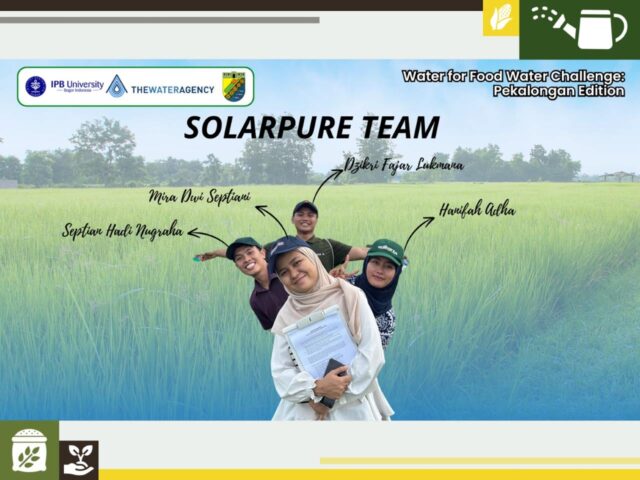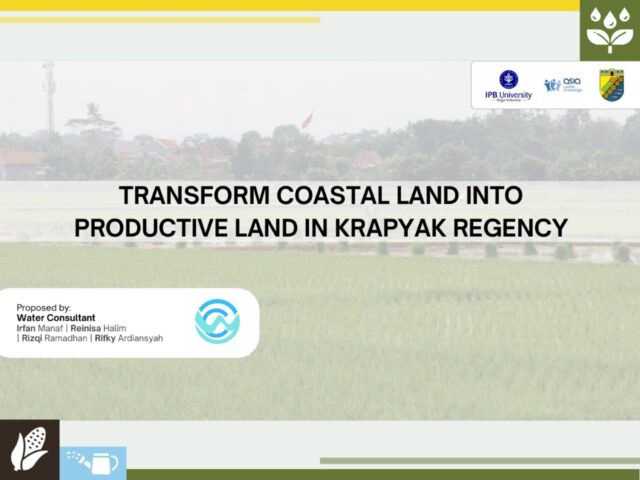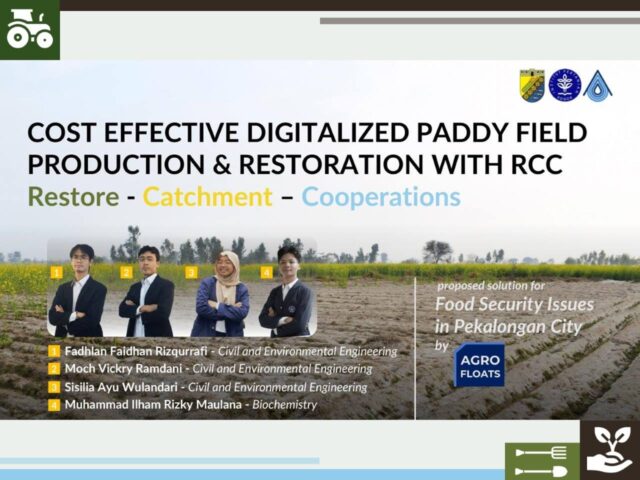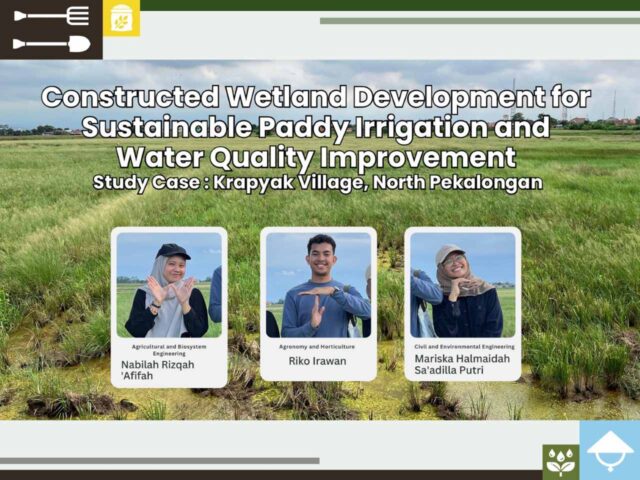Background
According to data from the Pekalongan City Agriculture and Food Agency, Krapyak Subdistrict has been significantly affected by seawater intrusion, which has caused agricultural land to be submerged in tidal floods for 7-8 years, increasing salinity levels in the soil and groundwater and consequently reduced agricultural productivity. Our findings showed that high soil salinity levels of up to 18 ppt inhibit plant growth, making it difficult for agricultural land to produce optimal yields. In addition, farmers also have difficulty obtaining fresh water because the surrounding rivers are saline and have been polluted by waste. Farmers only rely on rainwater and irrigation networks from dams located 14 km away, so the distribution of water for agriculture becomes increasingly difficult and inefficient, especially during the dry season.
Main Beneficiary
Our main beneficiaries are the farmers of Pekalongan, particularly those working on saline-affected land, who are facing income loss and food insecurity due to these environmental challenges.
Solution Proposal
To address this pressing issue, we propose a dual approach involving saltwater purification and “Surjan” farming techniques. The first step that must be taken is land preparation using dolomite fertiliser to neutralise the acidic pH, along with Tasnim Slow Release Fertiliser, which contains important nutrients such as nitrogen, phosphorus, potassium, and micronutrients. Next, we offer a future innovation that uses the principle of physical water evaporation, named SolarPure. SolarPure is the application of a saltwater purification system based on solar energy and integrated evaporation to produce fresh water from saltwater sources to increase the availability and quality of irrigation water sources for farmers. In addition, to increase agricultural productivity, we utilise the traditional planting technique “Surjan,” a traditional Indonesian method that encourages polyculture. This method includes forms of land use using diverse food varieties, namely bio-saline rice and green bean varieties Vima 2, Vima 3, Vima 4, and Vima 5, which can adapt to saline soils.
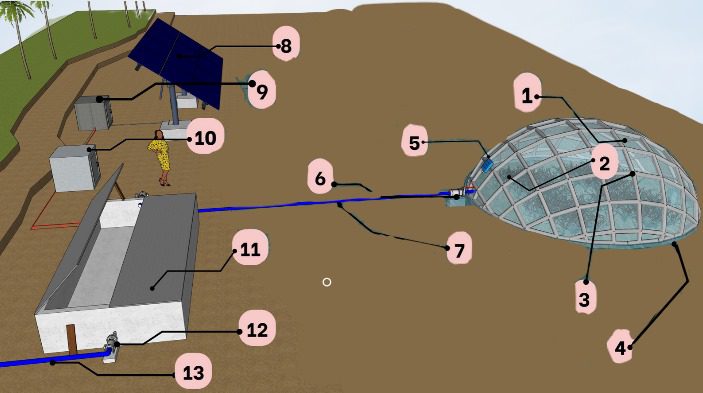
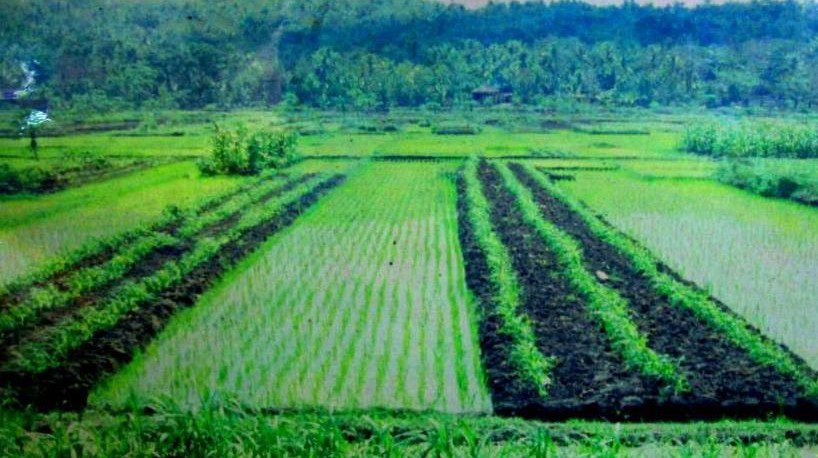
Impact
The expected impact of this solution is the availability of salinity-free irrigation water close to farmlands, improved soil fertility, and increased crop diversity. Thus, crop yields can increase, creating additional income opportunities for farmers and improving food security in Pekalongan.
See more details on our presentation file below:

Team Profile
Mira Dwi Septiani, Biochemistry, [email protected] / http://linkedin.com/in/miradwiseptiani
Hanifah Adha, Environmental Engineering and Management, [email protected]
Septian Hadi Nugraha, Natural Resources and Environmental Management Science, [email protected] / https://www.linkedin.com/in/septian-hadi-nugraha-416937212/
Dzikri Fajar Lukmana, Industrial Management, [email protected] / https://www.linkedin.com/in/dzikri-fajar-lukmana-75718224b/

